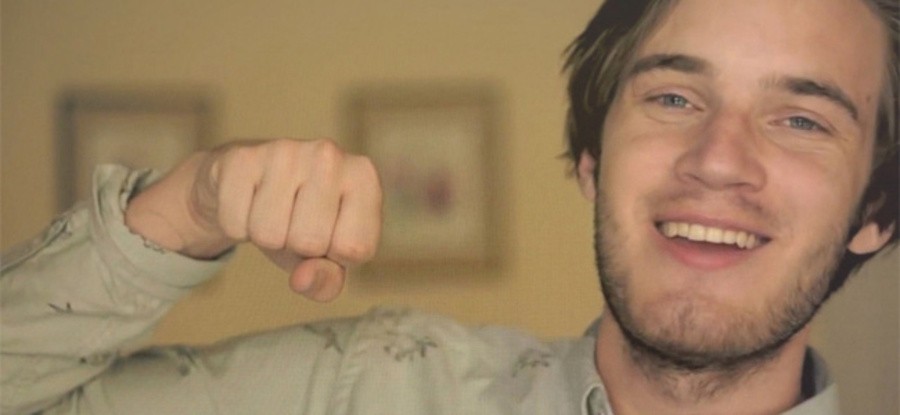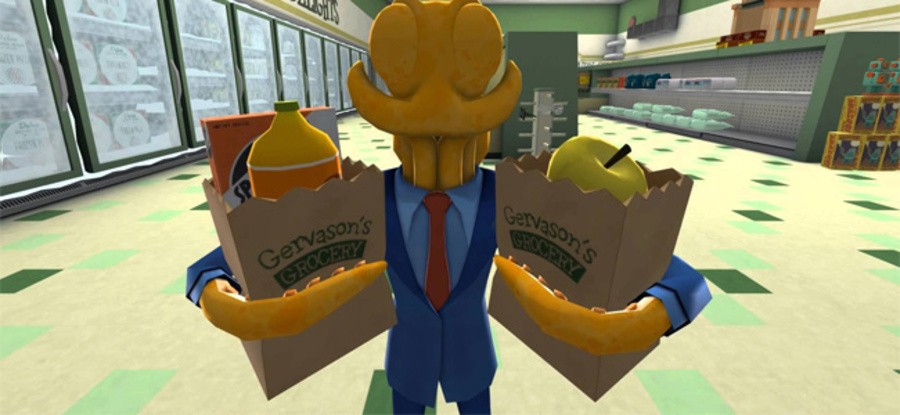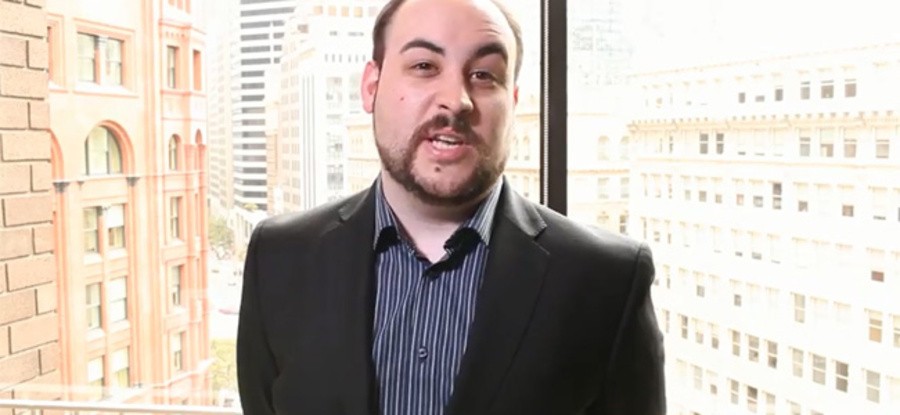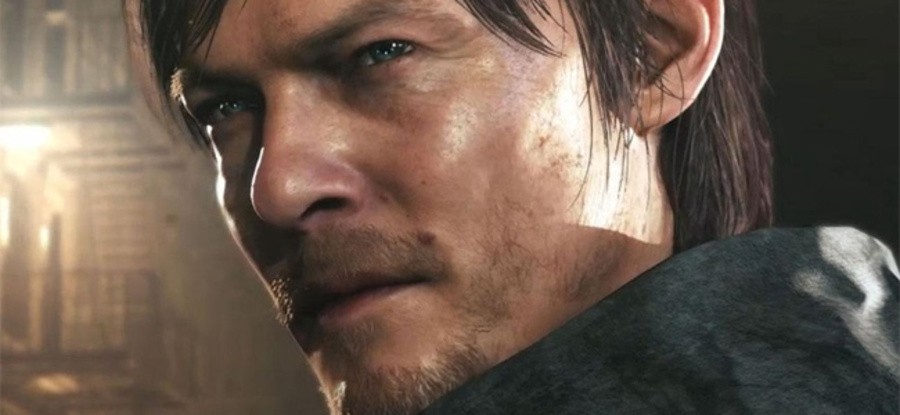
“A 20 minute video changed my life,” said Mike Bithell in an interview with GamesTM. “That's the reality.” And he's right. Thomas Was Alone is a minimalistic, esoteric little gem which seemed likely to come and go without turning many heads. And without videos like the one posted by TotalBiscuit, which now has over 300,000 views, it almost certainly would not have made it to PlayStation platforms.
Bithell, once an indie part-timer, even got the opportunity to come out on stage at Sony's recent Gamescom presentation, showing off his upcoming PlayStation 4 game, Volume. It's mind boggling to think that all of that success stemmed from a 20 minute video.

But this is undeniably “the reality”, as Bithell so neatly puts it – just a remarkably modern one. And one which many developers are still acclimatising to. We live in a world where a certain Swedish gamer – more on him later – is one of the most popular YouTubers in the world. A playthrough from him has the power to make your game an overnight success. This is the reality, and many studios are desperate to adapt.
After all, why wouldn't you? When YouTubers and Twitch streamers have such a major influence on sales, then why wouldn't companies try their best to court them? There is a noticeable formula to games which do well on YouTube, and many indies have begun to pick up on this. Jokingly referred to as 'PewDiePie bait', these games tend to tick a few boxes. Jump-scare horror? Tick. Surreal sense of humour? Yep. Ridiculous glitches? You bet. These are all the sorts of games which get good traffic on YouTube and Twitch. So naturally, we see plenty of them being developed.

It's a gold rush, essentially. Every indie developer – and even some big studios – dreams of making the next Slender, or Octodad, or Goat Simulator; a game which makes it big on YouTube, and thus drives sales. But there are, of course, quite a few questions raised here: for starters, are developers sacrificing their artistic integrity for the sake of YouTube views? And, if a game is developed with streaming in mind, does that then have a positive or a negative influence?
Videos have the power to change people's lives for the better – but we shouldn't let them change games for the worse
The answer, like in most cases, is fairly balanced. It has its downsides, sure, but there are also plenty of positives. Look at the recent P.T. demo, for instance. As you probably already know, it's a skin-crawlingly tense slice of first-person horror, which turned out to be a playable teaser for Silent Hills on the PS4. And we reckon that it's ace.
The convoluted nature of its ending frustrated many who tried to find it – in fact, there's a fairly strong argument to suggest that, as a game, it isn't all that great – but, as a talking point and a teaser for Silent Hills, it's truly a masterstroke. It's an incredibly telling sign of the way that things are going, too. Silent Hills is the latest entry in one of gaming's best-loved franchises, headed up by one of gaming's biggest names, and it was essentially revealed on Twitch, rather than on stage. Leaving an announcement so monumental in the hands of a streamer shows that it's not only indies who are noting the potential of gaming broadcast platforms – big names also want a slice of the action.

But while P.T. was made to be streamed, Silent Hills won't be – and we'd argue that it'll be a better game as a result. You see, everything that makes P.T. brilliantly watchable as a piece of viral marketing – its ambiguity, its repetition, all of the mad theories about how to activate its ending – is what makes it fundamentally quite unenjoyable to play. And the same goes for many YouTube favourites.
Octodad: Dadliest Catch has the same problem. It's great to watch other people wrestling with the controls in a doomed attempt to contain Octodad's true nature, but you're unlikely to have the same laughs when you're doing it yourself. It's tough and it's fiddly, and instead of chuckling away at somebody else's frustration, now it's you who's experiencing it firsthand.

Essentially, there's a huge difference between a game which is fun to watch and a game which is fun to actually play. And, as the influence of Twitch and YouTube becomes stronger, it's not unreasonable to fear that savvy developers might prioritise the former.
But then, perhaps we're being too cynical. Game developers put a hell of a lot of work into their games, and why shouldn't they get to see them succeed? Gamers on YouTube and Twitch have the power to shine a light on titles which would otherwise stand little chance of success, and they entertain millions of people every day. Videos have the power to change people's lives for the better – but we shouldn't let them change games for the worse.
Are you surprised by the surge in popularity of YouTube and Twitch personalities? Do you think that there’s a danger of developers going in search of streaming success – and forgetting what makes a game great in the process? Broadcast your opinion in the comments section below.





Comments 18
Really good article, Matt. It's interesting, I never really thought of titles like Octodad and Goat Simulator as 'PewDiePie bait' but I totally get what you mean. Those zany games do seem to do incredibly well on YouTube, and in the case of Octodad, I was really excited about it because I'd seen some of those silly videos — but like you say, it wasn't actually that much fun to play.
It's interesting how much the industry has changed in just a few years, and I find it incredible that these days one person with a YouTube account and a microphone has the power to make or break a game more than entire marketing departments. It's quite incredible really, and opens a whole other can of worms.
Interesting time, how things change, for years I heard people complain 'gaming' was anti-social and solitary hobby, now its a really social community with real connections between gamers.
Personally, PewDiePie has done a good thing for gaming.
Interesting. But I don't see why anyone would want to make a game that's not fun to play. They must believe at least some people will enjoy it.
I saw brief clip of goat simulator and thought it was hilarious but I don't really go trawling through YouTube, I almost never touch it unless I'm looking to watch something specific. With surgeon simulator and octodad the trailers were good enough to get me interested and buy. As for Thomas was alone, I had no idea what it was other than some blocky thing and the above clip represents exactly that, no interest whatsoever from me. I would say though that its not at all bad but just not for me. As for P.T. not being great??? I haven't seen or played any other horror game come close.
@SimonAdebisi I thought Outlast was a really good survival horror. In fact it was the best horror in a very long time imo. The last game that made my hairs stand and jump out of my skin was Deadspace 1. Since then there hasn't been anything close, until Outlast that is.
My worry is that alot of people will watch these games being played and think, that looks fun. It has loads of views so it must be a fun game, only to find after spending money that it was more fun to watch and not fun to play. So they've just wasted money on something that they properly wouldn't have normally.
@MoleZandor I think the danger's more that in the pursuit of goofiness, the entertaining essence that all great games have gets garbled. I actually think Octodad is a brilliant example of that. Surgeon Sim is another one.
@WARDIE outlast started off a little scary but not much, I thought aliens vs predator was actually not too bad and siren blood curse was decent.
Seeing this from a dad's POV - my kids watch a lot of walkthrus and glitches - apparently there's some Youtube guy whos big on glitches - but my kids only watch vids of games they know, mostly The Diamond Minecart and Chugaconroy who seems to have very good taste in games. My biggest concern is the lazy factor - they would rather watch than play. I consider it the MST3K effect. But going forward it actually concerns me, phones and tablets may be lousy devices for gaming, but they are great for Youtube. I dont mind my kids playing games, but watching them seems wrong.
Oh, and before I get any unsolicited parenting advice - my wife prefers the vids over them playing b/c they are usually just 15 minutes long and never lead to anger and frustration so she has more control. And I dont like sleeping on the couch or in the doghouse, even if only metaphorically. Someday they'll be teenagers and do what they like, I just hope they like playing more than watching. Stupid Youtube.
@MoleZandor - Ever hear of Flappy Bird?
Dont take the not fun to play literally, think of it more as making a game look good, hence creating more marketing buzz, over gameplay.
Ever see a great trailer for a movie but the movie itself sucked? Its like that, only with games.
Very interesting writeup, Matt Personally, I found P.T.'s lack of traditional 'interactivity' its biggest draw. I was actually able to play it, and enjoy the horror, because I wasn't trying to wrestle with systems at the same time as being absolutely terrified.
But I'm going off on a tangent. I think the questions of quality are really interesting. I remember seeing a game - I can't remember which one - which had a room that just blatantly thanked PewDiePie for playing. At the very least, you have to admire the cojones.
@k_andersen Thanks! And haha, really? I've seen a few examples of developers pandering to the egos of YouTube stars, but that's just ridiculous
All I can say is I'm glad most game developers and producers have stopped fighting against Youtube and Twitch and have embraced it instead, well, except Nintendo. Nintendo is still fighting against it.
Also, Totalbisuit is one of the few reviewers I still trust to give me a fair opinion on a game, with nearly the whole gaming journalism industry embroiled in conflict of interest issues and extreme bias for multiple reasons, and apparently also pushing SJW issues as click bait (and for much more nefarious reasons).
Great article on a very interesting subject. I think it will be particularly interesting to see the impact this has on the development process in larger organisations - where, historically, the role of a marketing team would be to sell the game the devs have made, I wonder if they will start to have a progressively larger influence on the development process and how the end product actually plays.
To be honest, as long as the integrity of the game isn't compromised, and it doesn't impact on how enjoyable it is to actually play, I don't really mind either way. But I definitely think devs are going to need to be more and more careful to get the balance right. Really, I think that's where indies come into their own - without the head honcho's pushing them to make potentially detrimental alterations to appeal to the masses, it is so much easier for them to preserve the original vision for their games!
@SteveButler2210 Thanks for reading, Steve! Glad you enjoyed it
@get2sammyb I see what you are saying, but I really enjoy both of those games, maybe I have a high threshold for irritating and difficult games. Must be why Trials is my favourite game.
I don't really watch other people play games, me myself don't see the point of it, unless I want to see some gameplay (5-10mins) of a certain game.
@SimonAdebisi Playing Outlast with my PX4's in the dark gave the desired effect I thought.
Tap here to load 18 comments
Leave A Comment
Hold on there, you need to login to post a comment...